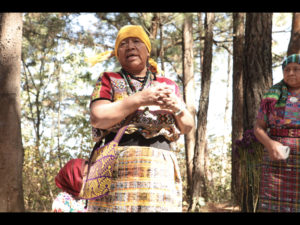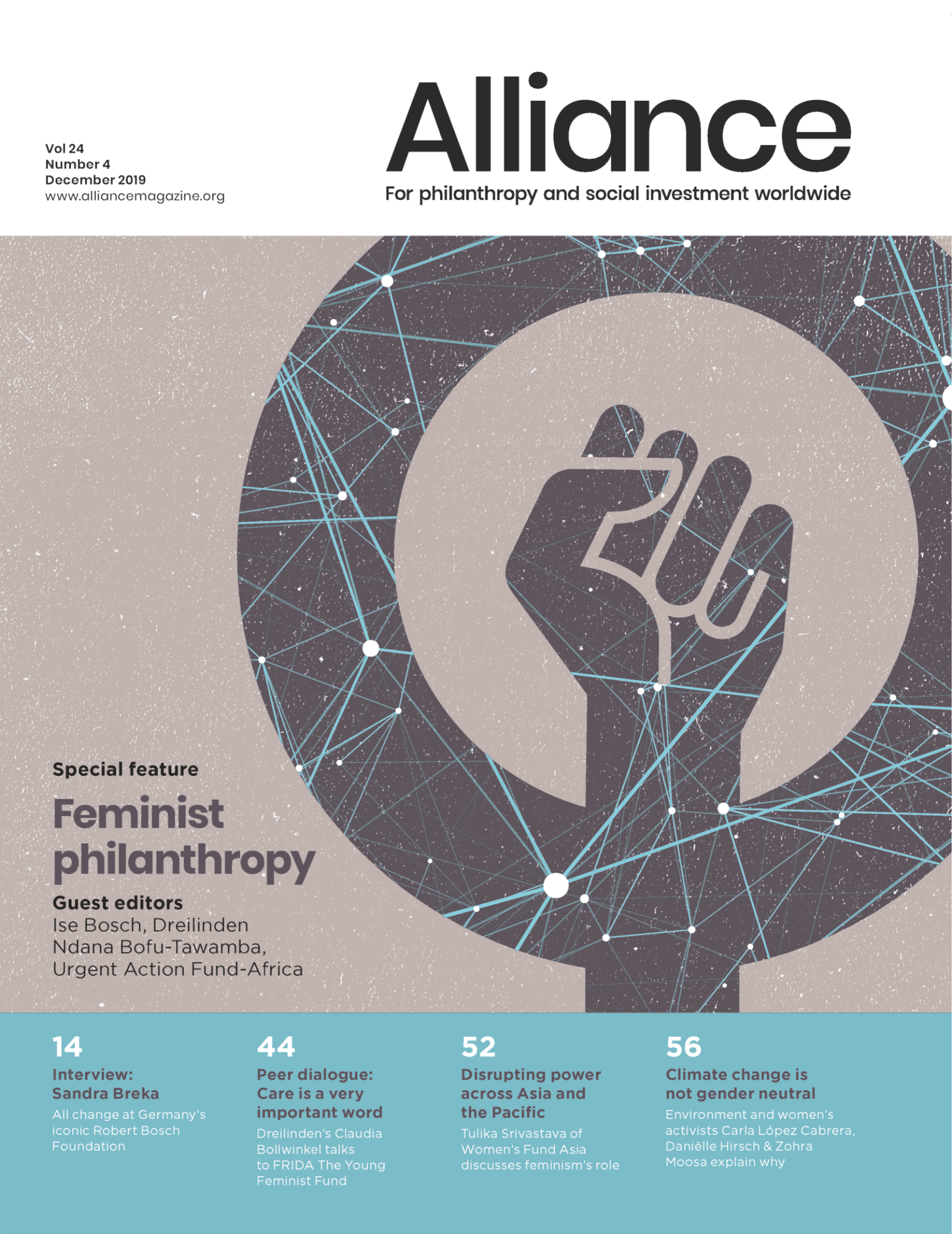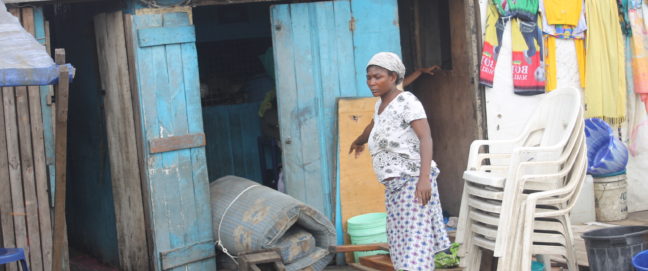NoVo’s Move to End Violence ten-year history has instructive lessons for dismantling structures and narratives of oppression
In the past decade, we’ve seen an alarming increase in policies that undermine human rights, and a continuing rise in state violence, with a particularly devastating effect on girls and women. In the midst of this, we’ve witnessed powerful, thriving grassroots feminist movements working to dismantle oppressive forces and effect lasting social change.
At the NoVo Foundation, all of our work is rooted in ending systems of violence and exploitation, particularly gender-based violence. From the very beginning, we’ve prioritised uplifting the leadership of girls and women in their communities and Indigenous wisdom as a catalyst for global social change. The movements led by our partners in the US and the Global South have deeply informed our own core values, which include respect for lived experience, social justice, and radical hope, and continue to guide us in our learning.
Through the NoVo Foundation’s $80 million commitment to Move to End Violence (MEV), we’ve helped nurture a bold vision for those working to end violence against women and girls – including cis and trans women and gender non-conforming people – by supporting a robust network of change agents. The majority of MEV’s participants, called ‘Movement Makers’, are women of colour, Indigenous and LGBTQ leaders who work at the intersections of advancing gender justice.
Our programme has also allowed us to witness the transformative power of storytelling drawn from the lives of marginalised girls and women.
In Move to End Violence, we started by listening and learning. We spoke with hundreds of stakeholders committed to ending violence against women and girls and asked what they needed to achieve enduring social change and an end to gender-based violence. They shared their challenges including burnout, resource scarcity and inability to rise above the daily work to think creatively. Some of the things they recommended included prioritising advocacy, leadership that is transformative, visionary and movement-based, and developing self-care practices at individual and organisational levels. At the beginning, the expectation was to build community and align around a world free from violence. Over the years however, the programme has evolved and deepened in powerful ways.

Indigenous human rights activist Rosalina Tuyuc at the ‘Landscapes of Memory’ site in Guatemala. Photo credit: Camila Urrutia
One key deepening is the programme’s sharpened commitment to building alliances with leaders from the US and leaders based in the Global South. While the commitment to transnational movement building was part of Move to End Violence from the beginning, we have learned that this kind of work is time-intensive and requires deep care and intentionality to facilitate relationship-building grounded in deep solidarity to emerge.
This year, Movement Makers took part in an International Exchange in Guatemala, where our fourth cohort spent time with NoVo partner JASS, a global network that strengthens the voice, organising power and safety of women activists and movements. The convening brought together Mesoamerican and US-based women of colour to exchange methodologies and histories and included a visit to the Landscapes of Memory memorial for victims of the 36-year armed conflict in Guatemala, to learn how US imperialism played a role in the 200,000 people who died. MEV and JASS organisers took part in a ceremony facilitated by Indigenous human rights advocates Rosalina Tuyuc and Nobel Peace Prize winner Rigoberta Menchú Tum where they collectively understood how US-supported resource extraction led to violence against the earth and its connection to the displacement, torture and murder of thousands of Mayan girls and women. Everyone was inspired by how activists are continuing to defend their lands from extraction, reclaim Indigenous traditions, and by their steadfast activism against injustice and repression.
The experience sharpened their analysis of how the immigrant rights movement and the movement to end gender-based violence must be woven together.
Another way the programme has evolved is in how it grapples with tensions that have historically existed within social justice movements. Some of these include challenging anti-Blackness and transphobia. During our Domestic Exchange in March, we hosted a roundtable of activists who are leading powerful work in Black and Brown communities in Texas, including Latinx and trans activists of colour. Leaders pointed out the ways in which Black cis and trans immigrants are targeted for punishment and criminalisation in detention centres, ‘another way that anti-Blackness shows up’. The discussions highlighted the need for solidarity and cross-community organising, while also underscoring the nuances and complexities in our struggles.
Movement Makers have also named and addressed Indigenous invisibility within movements, most recently illustrated by the lack of attention to the epidemic of missing and murdered Indigenous women, girls and two-spirit people (MMIWG2S) in North America. MEV members have been able to partner with organisations such as the Minnesota Indian Women’s Sexual Assault Coalition by marching and raising attention to this largely invisible crisis, countering systemic patterns of colonialism and violence.
MEV supports leaders in imagining a new reality and in truly having the space to reflect, build and strengthen their own capacity needed for systemic change.
Our programme has also allowed us to witness the transformative power of storytelling drawn from the lives of marginalised girls and women. During our convening in South Africa, MEV connected with groups such as the Whole World Women Association (WWWA), which works with refugee women from the region. Attendees heard from survivors who used poetry and theatre to tell their stories, recounting the horrors migrant women face, but also their own resilience, activism and hope. The experience ultimately sharpened their analysis of how the immigrant rights movement and the movement to end gender-based violence must be woven together, ensuring the voices of those most affected are heard.
By fostering collective relationship and power-building, feminist intersectional approaches to social justice and practices of healing and liberation, Movement Makers continue to dismantle dominant narratives and systems of violence and oppression. MEV supports leaders in imagining a new reality and in truly having the space to reflect, build and strengthen their own capacity needed for systemic change. We invite others to imagine, and help create, a world of safety and dignity for us all. Consider together the immense possibilities of building an even larger global movement to end violence against girls and women.
Monica Dennis is co-director, Move to End Violence.
Email: mdennis@rabengroup.com
Priscilla Hung is co-director, Move to End Violence.
Email: phung@rabengroup.com
Twitter: @MoveEndViolence
Pamela Shifman is executive director, NoVo Foundation.
Email: pshifman@novofoundation.org
Twitter: @novofoundation






Comments (0)